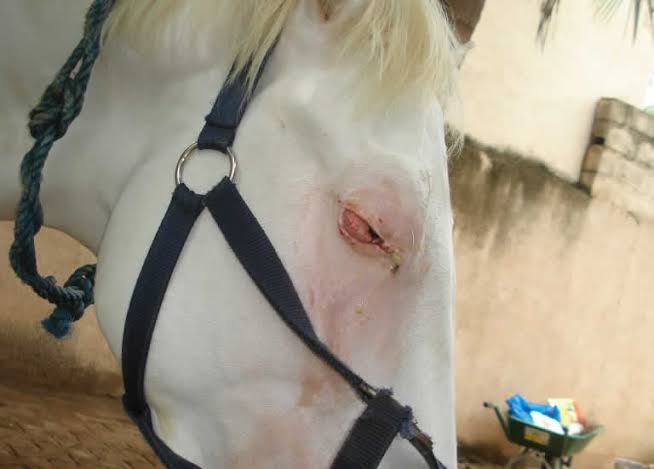
15 Legal Tips for Selling a Horse In India
1. How can I create an advertisement for a horse for sale that doesn’t yield negative consequences in the future?
To ensure a successful advertisement for a horse sale without negative consequences down the line, it is important to follow these guidelines:
- Focus on providing factual information about the horse, such as its past performance and achievements. Avoid exaggerating or projecting its potential.
- Always disclose any quirks, habits, or known issues explicitly. Honesty is key in finding the right buyer and avoiding disputes later on.
- Your primary goal should be to attract the right buyer who will be a good match for the horse. By providing an accurate representation of the horse, you can avoid attracting unsuitable buyers.
- Be transparent about the horse’s qualities, both positive and negative, to manage buyer expectations effectively.
- Consider including a disclaimer stating that the buyer should conduct their own due diligence and inspections to ensure the horse’s suitability for their needs.
- Maintain records of your advertisement, communications, and any agreements made with the buyer for future reference.
2. Can using terms like "bombproof" in an advertisement for a safe horse for sale expose me to risks?
Using terms like “bombproof” in an advertisement for a safe horse for sale can potentially put you at risk. While the term may be commonly understood within the horse industry to mean highly reliable, it can be misconstrued by individuals without extensive knowledge of horses.
If a dispute arises later, a judge who is unfamiliar with horses might interpret the term “bombproof” as a literal claim that the horse is impervious to any kind of reaction, even in extreme circumstances. This could lead to unfavorable outcomes for you. It is advisable to use more precise language to describe the horse’s temperament and safety record without using exaggerated terms.
3. What should I do if a buyer complains about a horse's change in behavior after purchase, which may be due to a new home and routine?
It is common for horses to experience a change in behavior after being moved to a new home and routine. If a buyer complains about such changes, you can take the following steps to address the situation:
- Encourage open communication with the buyer to understand their concerns fully.
- Provide advice and guidance on managing the horse’s transition to the new environment, including suggestions for gradually introducing changes to the routine.
- If the buyer’s complaints persist and they believe the horse’s behavior is a result of a pre-existing issue or misrepresentation, refer to any documented information or agreements made during the sale process.
- Retaining video and photo evidence of the horse during the time you owned it can be helpful in demonstrating its behavior and condition before the sale.
- If necessary, consult legal advice to understand your rights and obligations based on consumer protection laws in your jurisdiction.
4. Is it important to have a sales contract in place when selling a horse?
Having a sales contract in place is crucial for protecting your interests as a horse seller. In the event of a dispute or legal proceedings arising from the sale, a contract or your terms of business will be the primary document considered by a judge. It provides a means for you to establish a recorded record of the sale in a permanent form.
5. What are the essential elements that should be included in a horse sales contract?
When drafting a horse sales contract, it is important to include the following essential elements:
- Clearly state the identities and contact information of the buyer and seller.
- Specify the details of the horse being sold, including its registered name, breed, age, and any identifying markings.
- Outline the purchase price and payment terms, including any deposit or installment arrangements.
- Include any warranties or guarantees provided by the seller regarding the horse’s health, soundness, and suitability for the buyer’s intended purpose.
- Disclose any known issues, quirks, or habits of the horse explicitly to avoid potential disputes.
- Clearly define the responsibilities and obligations of both the buyer and seller.
- Include provisions for dispute resolution or arbitration, if desired.
- Have both parties sign and date the contract to indicate their agreement and understanding of its terms.
6. What are my post-sale obligations as a horse seller?
From a legal standpoint, your obligations as a horse seller arise if the horse is not as described, of unsatisfactory quality, or unfit for its intended purpose. In such cases, you may be required to address the issue through repairs, replacement, or issuing a refund to the buyer.
However, the specifics may vary based on consumer protection laws in your jurisdiction, so it is advisable to consult legal advice to understand your obligations fully.
7. What if a buyer misrepresents their riding ability, particularly if they are a novice?
If a buyer misrepresents their riding ability, it can create potential challenges and risks for both the buyer and the seller. To protect yourself as a seller, it is advisable to include provisions in your terms of business or sales contract where the buyer warrants that they possess the necessary experience, knowledge, and resources to care for and handle the horse safely.
By including such provisions, you can demonstrate that you provided accurate information about the horse and its suitability, and the buyer acknowledged their own responsibility in assessing their riding ability. This can help protect you from being held responsible for any issues that arise primarily due to the buyer’s lack of experience or misrepresentation.
8. If I sell a horse on behalf of someone else and pass on incorrect information provided by the owner to the buyer, am I held responsible?
When selling a horse on behalf of someone else, it is crucial to clearly communicate to the buyer that you are acting as an agent and do not own the horse. The contract of sale will be between the buyer and the horse’s owner, not you. However, in rare instances, agents can be held liable for negligent misstatement if they make inaccurate statements to the buyer.
To mitigate such risks, ensure that any statements you make about the horse are factually correct. It may be prudent to seek a written agreement from the owner, indemnifying you financially in case any complaints or claims arise. Additionally, request the owner to provide all information about the horse in writing to avoid any disputes regarding what you were told.
9. What should I do if a buyer wants to return a horse simply because they do not like it? How can I protect myself in such situations?
Typically, a buyer should only be able to return a horse if there is a legitimate issue with it, such as undisclosed health problems or misrepresentations. However, some buyers may try to rely on “cooling off period” rights or distance selling legislation to return a horse for any reason within a specified timeframe.
To protect yourself, you can take the following steps:
- Encourage potential buyers to see the horse in person whenever possible to reduce the likelihood of a “change of mind” return.
- Include a clause in your terms of business or sales contract explicitly stating that you do not sell horses through an “organized distance sales scheme,” which triggers the “cooling off period” rights.
- Clearly communicate the terms of sale and the buyer’s responsibilities in assessing the horse’s suitability before purchase.
- Retain documentation of any agreements made, including signed contracts or sales invoices, to demonstrate the buyer’s acknowledgment and acceptance of the sale terms.
10. In the realm of social media, how can I protect myself from slanderous statements made by an unhappy buyer, even when I am not at fault?
In today’s age of social media, negative publicity from a dissatisfied customer can have a significant impact on your business. To protect yourself from slanderous statements on social media, consider the following actions:
- Respond professionally and calmly to any correspondence or messages from the unhappy buyer. Acknowledge their concerns and assure them that you or your legal representative will respond promptly.
- Determine if there are practical steps you can take to halt, remove, or block the offensive material on social media platforms. Utilize platform-specific features to report abusive content or block specific users.
- If the damaging statements persist and you believe they have crossed into defamation territory, consult with a legal representative. They can write to the platform or website hosting the defamatory material, requesting its removal. In severe cases, a defamation claim may need to be pursued to protect your reputation.
11. What should I do if an unhappy buyer threatens legal action against me?
If an unhappy buyer threatens legal action, it’s important to handle the situation carefully. Here are some steps to consider:
- Remain composed and professional in your communication with the buyer. Avoid responding with anger or aggression, as anything you write could be reviewed by a judge during legal proceedings.
- Take the complaint seriously and address it promptly. Ignoring or delaying in addressing the buyer’s concerns can lead to more significant challenges.
- Familiarize yourself with the requirements of the court process or seek legal advice. If the buyer proceeds with legal action, a judge may establish deadlines for document preparation and exchange. Failure to meet these deadlines can have severe consequences.
12. If a buyer paid a deposit for a horse subject to vetting, but the horse fails the vetting, is the seller obligated to return the deposit?
The obligation to return a deposit in this situation depends on the terms and conditions agreed upon between the buyer and the seller. It is essential to clearly address this scenario in your terms of business or sales contract.
If the deposit is considered a “true deposit” and not a “part payment,” you may be entitled to retain the deposit to compensate for the costs incurred during the vetting process. However, the specifics may vary based on your jurisdiction’s laws and the terms agreed upon, so it’s advisable to consult legal advice to understand your rights and obligations fully.
13. If an agent sells a horse and discloses its issues in a signed sales contract, can the buyer still return the horse based on those disclosed issues?
If an issue was expressly disclosed to the buyer before the sale and acknowledged in a signed sales contract, it would generally prevent the buyer from seeking a return of the horse solely based on those disclosed issues. By signing the contract, the buyer indicates their acceptance and understanding of the disclosed issues.
However, if the issue significantly differs from how it was disclosed or if other misrepresentations occurred, the buyer may have grounds for a return or other remedies. The specific circumstances and applicable laws can influence the outcome, so it’s advisable to seek legal advice in such situations.
14. If a horse passes a vetting but a pre-existing medical condition is discovered later, and the buyer wants to return the horse, but the seller was unaware of the condition, what protections are available to the seller?
If a pre-existing medical condition is discovered in a horse after it passes a vetting, and the seller was genuinely unaware of the condition at the time of sale, the seller may have some protections available. However, these protections can vary depending on the jurisdiction and specific circumstances.
In some cases, consumer protection laws may hold the seller responsible for undisclosed defects, even if they were unaware of them. However, if the buyer is also a trader or has waived their rights as a consumer, different rules may apply.
To better understand the protections available to you as a seller, consult legal advice familiar with the relevant laws and regulations in your jurisdiction.
15. One piece of advice to horse sellers to better protect themselves and their business
The most crucial piece of advice for horse sellers to better protect themselves and their business is to prioritize transparency and clear communication throughout the sales process. This includes:
- Providing accurate and detailed information about the horse’s history, behavior, and any known issues.
- Documenting all agreements, disclosures, and communications in writing.
- Utilizing written sales contracts or terms of business that clearly outline the rights and obligations of both the buyer and seller.
- Encouraging potential buyers to conduct their own due diligence, such as veterinary examinations, trials, or inspections, to ensure the horse’s suitability.
- Keeping records of the horse’s condition, including photographs, videos, and veterinary reports, before the sale.
- Considering legal advice to ensure your sales contracts comply with applicable laws and provide adequate protection.
Conclusion
By prioritizing transparency and clear communication, you can establish a foundation of trust with buyers, mitigate potential disputes, and protect your reputation as a seller.











